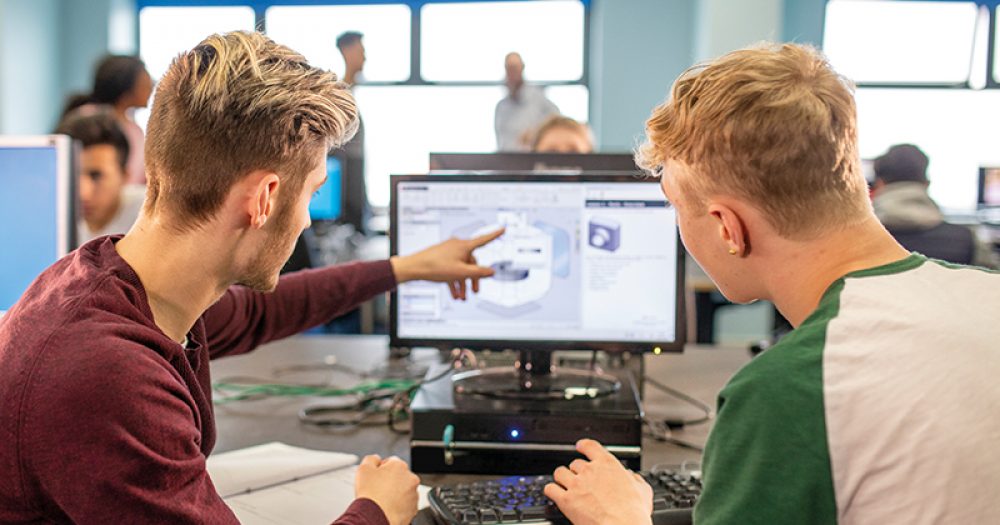Last week at BETT I had the pleasure of sharing the results of Pearson’s Global Learner Survey 2019 – sharing feedback from 11,000 learners in the UK and Internationally. This article highlights some of the main findings from the research and explores the important role of educational technology as an enabler for unlocking talent at an individual level, in businesses and more broadly in supporting the industrial and economic strategies of many governments.
The Pearson Global Learner Survey engaged with 11,000 learners across 19 countries. The results provide three key insights into the way learners are changing; changes we believe will underpin the future of learning.
- Firstly, a DIY mindset is reshaping education. With ready access to technology there is an increased move to person ownership of learning as individual progress in their lives and careers. According to our survey 81% of people globally believe learning will become more DIY the older you get.
- Secondly, the 40-year career is gone, replaced by lifelong learning and diverse career paths – we are already seeing this trend in many of our own careers and in many sectors. The results of the survey suggests that there will be an increased emphasis on the talent economy and recognition that the traditional, linear career path will no longer be the norm. Our findings indicate that globally, over 80% of people think they will need to keep learning or re-training throughout their career.
- And finally, people expect digital and virtual learning to be the new norm in the next decade – supporting greater engagement, flexibility and access. The Global Learner Survey suggests that circa 80% of people in every country surveyed see the opportunity for Artificial Intelligence and other innovations to make learning more engaging.
It is clear that the findings of the Survey are driven by four key global trends most of which are well understood. The first of these is the significant demographic shifts across the globe – moving to an increased number of people over the age of 60 in many economies. This trend is accompanied by rapid technological advancement and with this the impact of new roles, changing roles and the increased coexistence of humans alongside technology in work and life. A third global trend which is less often spoken about is a major shift in how businesses operate – working as part of a wider ecosystem where businesses, enterprise and individuals connect. The final area shaping what learners are looking for in learning throughout their lives are the preferences and values of many Gen Z – be it an increased emphasis on the importance of wellness, work-life balance, flexibility, the environment, social responsibility and values; the implications of this is significant for employers in terms of how they engage with, attract and retain talent in their businesses.
So what does all of this mean for us as a collective and for our role in the provision of education and learning – a powerful enabler for change both social and economic. Where do we need to focus our efforts as we move forward to continue supporting access and helping people make progress in their lives including careers?
I would like to suggest four main areas – the first is the need to place more value on vocational and career focussed education and its contribution to driving sustainable economic and social growth, productivity and GDP but also in preparing young people and adults to respond to the changing world of work. We know we still have a real challenge in getting politicians and society to value academic, work-based, and career focussed education equally, however it is encouraging to see many governments around the world embedding technical and vocational education into the heart of their industrial strategies. The second area of focus is the need to create a culture and love of lifelong learning, helping us and future generations adapt to change – something acknowledged by the respondents in the Global Learner Survey. A third important area is the emphasis on soft skills such as flexibility, adaptability, critical thinking, creativity – preparing for a future where multiple careers, portfolio careers, global ecosystem, and greater co-existence of humans and computers will be the norm. And the final area is one that we are all already focused on – the need to increasingly use technology to expand the effectiveness of learning; new discoveries in technology are creating real opportunities to enhance access and provide exciting learning experiences, creating a huge opportunity to break down financial and geographical barriers. At Pearson, we are developing and embedding technology in what we do. Our Pearson Learning Hub, for example, is an exciting new development – a digital learning platform designed to deliver an interactive and personalised learning experience for all. We have also created digital teaching resources for our qualifications in sport, partnering with Max Whitlock MBE, gymnast and five-time Olympic medallist.
The means to unlock talent is an educational challenge not just in the UK but for governments all over the world. Continual transformation of education will be crucial as we prepare for the future. If you would like to share your thoughts after reading this article I’d be delighted to hear from you.









Your thoughts